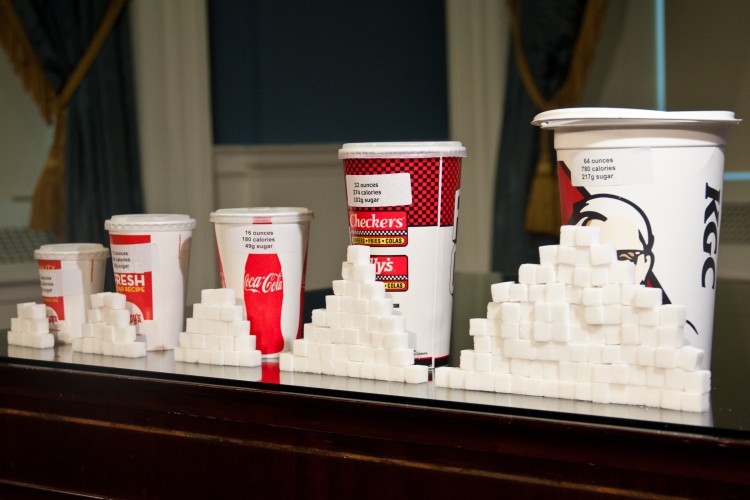NEW YORK—A coalition of groups with a lawsuit against the large sugary drink ban took to court on Wednesday, asking the judge to delay the ban until he decides if it is legal.
Lawyers representing the coalition argued in Manhattan State Supreme Court that the ban—instead of starting on March 12—should be delayed until the judge rules on the lawsuit.
Judge Milton Tingling said he'd decide within a week whether to delay the drink ban.
The large sugary drink ban, introduced by Mayor Michael Bloomberg, was passed in October and prohibits drinks larger than 16 ounces with more than 50 calories in any establishment that gets graded by the Department of Health.
Judge Tingling said the coalition should work with the city on the delay proposal before submitting it to the him for a ruling.
The coalition against the ban includes multiple groups, such as the American Beverage Association, representing beverage manufacturers like Pepsi; the Korean Grocers Association of New York, which represents 4,000 businesses, of which 1,400 would have to comply with the ban; and Teamsters 812, which represents workers in the bottling and delivery industries. In total the coalition represents hundreds of thousands of businesses which employ hundreds of thousands of people, according to one of the lawyers.
James Brandt, an attorney representing the coalition, said if the ban starts on March 12, businesses will have to spend money to comply, but the money would be wasted if the ban overturned.
“Nobody would ever spend their money in this way without even knowing if compliance is required,” he said.
A key part of the argument against the ban is that the stores governed by the Department of Health—establishments that mainly serve food, marked by letter grades in their front windows—will have to comply with the ban, while grocery stores and other businesses, sometimes right next to the food establishments, will not.
This leaves the food establishments at a loss because customers will choose to buy their drinks at grocery stores or convenience stores such as Duane Reade, said another representative for the coalition. Further, some people will also buy food from these places instead of the letter graded businesses, effectively damaging their revenue stream.
A city representative called this claim absurd, saying convenience stores don’t serve ready made food such as pizzas.
The city’s representatives said the coalition chose to not name a single store that would be affected, misrepresenting the number of places that would actually be affected by the ban—whether highlighting the potential economic impact on movie theaters or small food establishments.
“What they’re trying to do is bootstrap all the businesses that are not being harmed,” said Mark Muschenheim, counsel for the city.
Brandt said if a store was named, the city’s Department of Health might punitively target it, giving the owner a bad letter grade for speaking out.
Up for debate, too, was how enforcement would happen starting March 12, if the ban began.
Muschenheim said during the first three months no fines would happen; instead, the businesses would receive a written form after an inspection telling them they would have to change whatever was not complying with the new ban by June 12, or face a fine.







